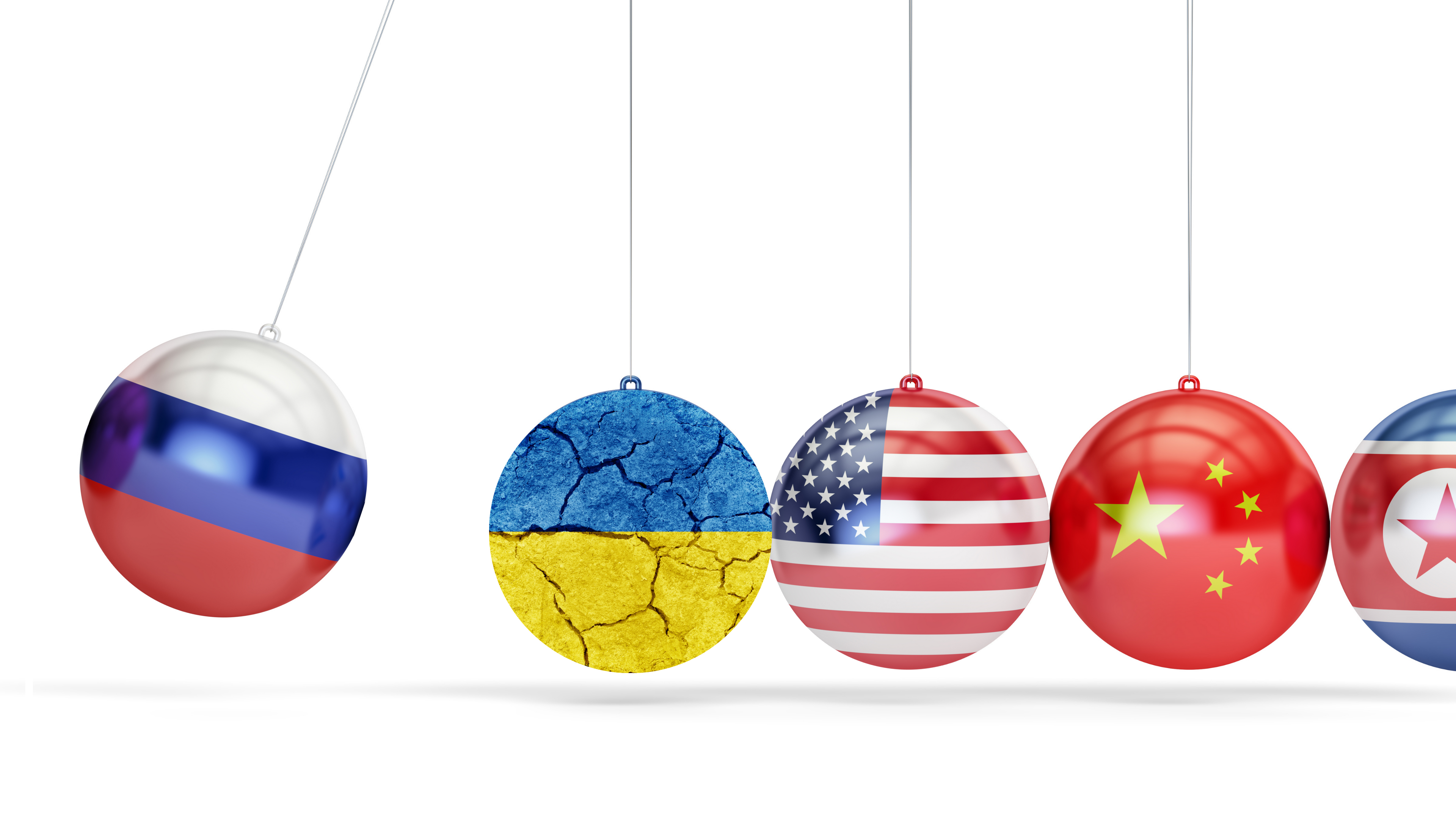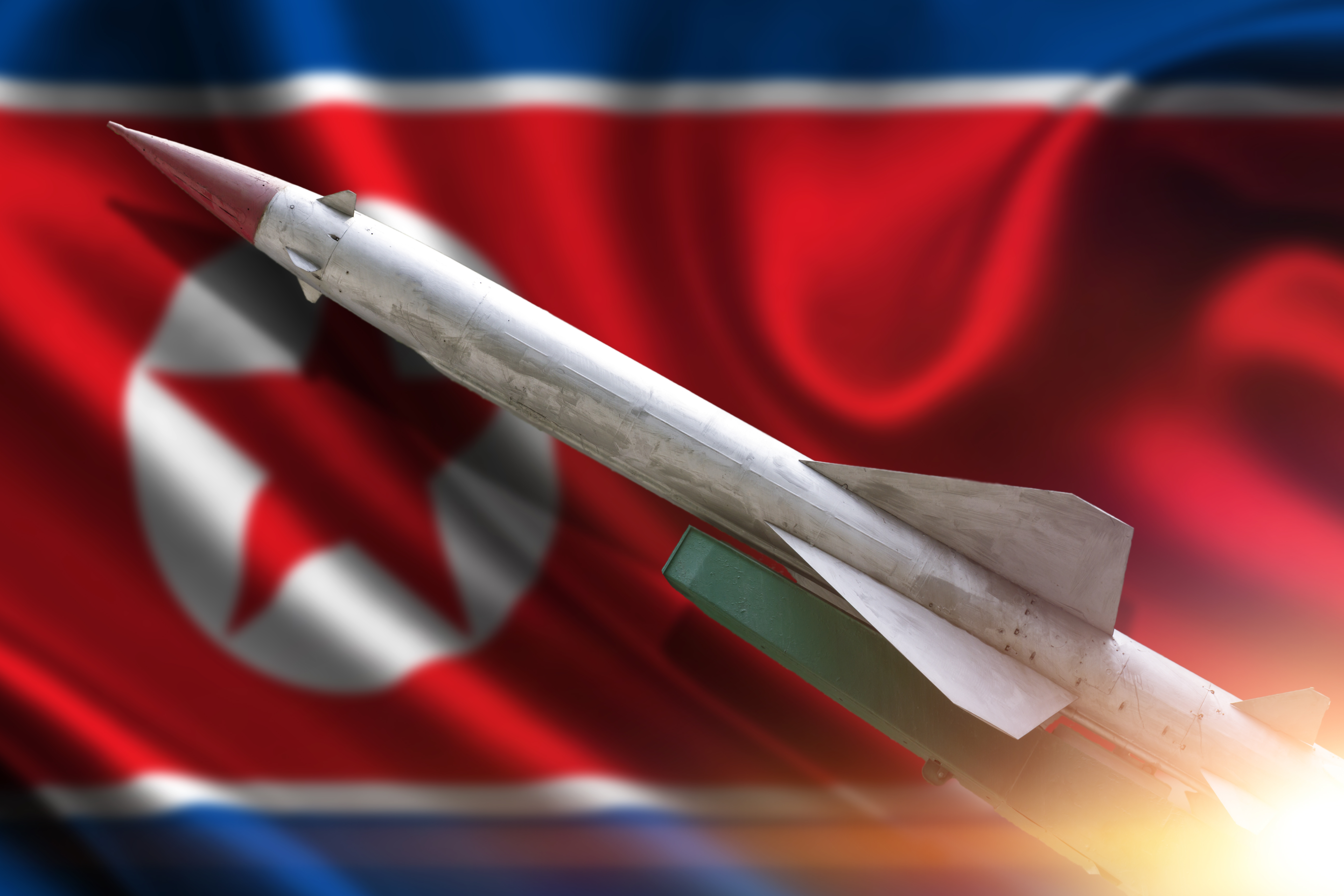
NK Update for February 2022
Special Report | March 30, 2022
Jaewon Lee
Lecturer and Visiting Research Fellow with the Institute of International Affairs, Seoul National University
In this month’s NK Update, Jaewon Lee, Lecturer and Visiting Research Fellow with the Institute of International Affairs at Seoul National University, discusses North Korea’s missile tests and its impact on the Korean Peninsula, strengthened DPRK-China relations, and the effect the Russia-Ukraine War has had on the North Korean sanctions regime. He especially notes that the escalation of the Ukraine crisis may induce authoritarian states to align, which would further undermine the international order. The author argues that this would adversely impact stability on the Korean Peninsula, which already lies vulnerable under the reverberations of great power politics.
North Korea Fires Missiles While Imposing Tighter Measures for Domestic Control
The international community witnessed significant events such as the Beijing Winter Games and Russia’s invasion of Ukraine unfold in February 2022. Meanwhile, North Korea launched another ballistic missile on February 28th – this comes after it reached a record-high in missile tests last January. The Korean Central News Agency reported that the test was conducted in the pursuit of developing a reconnaissance satellite system. It can be inferred from recent hypersonic weapons tests that military reconnaissance is among Kim Jong Un’s list of advancements. North Korea’s Foreign Ministry also stated that “in today’s world where many countries waste time dealing with the U.S. with submission and blind obedience, there’s only our country on this planet that can shake the world by firing a missile with the U.S. mainland in its range.”
Against such backdrop, some analysts provided a pessimistic view on the prospects of denuclearization at least for the first half of the year. For example, Seong-chang Cheong, Director of the Center for North Korean Studies at the Sejong Institute, wrote that “U.S.-North Korea relations will deteriorate further and raise military tensions on the Korean Peninsula,” and further suggested that South Korea may play a role in improving their bilateral relations. Sang-soo Lee, Deputy Director of the Institute for Security & Development Policy (ISDP) and the head of ISDP’s Korea Center, noted that Pyongyang has “prepared its military action plans, such as a series of future missile and possibly even nuclear tests in response to U.S. sanctions, the upcoming ROK-U.S. joint military exercises, and the potential victory of South Korea’s main opposition party (in South Korea’s presidential election.)”
Additionally, Pyongyang has tightened domestic control. During the 2nd Conference of Secretaries of the Primary Committees of the Workers’ Party of Korea, North Korea “reiterated the importance of ‘overcoming formalism’ in their work and sharing experiences of enhancing the ‘fighting power’ to successfully ‘vitalize’ production”. Kim Jong Un did not attend on the second day of the meeting.
China and North Korea Strengthen their Ties
Experts discussed the impact of missile bases near the borderline against China. North Korea is likely to be constructing a missile belt connecting Sangnam-ni to Hoejung-ni, which is “an extensive nationwide dispersed ballistic missile network subordinate to the Strategic Force.” The Hoejung-ni base is located 25-kilometers away from the Chinese border. Some experts argued that “the location is meant to protect its most powerful weapons from pre-emptive strikes, allowing the military to expand its already rapidly growing arsenal.”
On a Foreign Affairs article, Sungmin Cho and Oriana Skylar Mastro argue that “North Korea is becoming an asset for China,” as its missiles could fracture the U.S. alliance network. In fact, China and North Korea have noticeably become closer allies. On February 26th, Reuters, citing the Korea Central News Agency, reported that Xi made a remark in response to Kim Jong Un’s congratulatory message for the Beijing Winter Olympics Games, stressing the steady development of the China-DPRK relations of friendship and cooperation “under a new situation.” What that “new situation” refers to remains unclear. According to the Daily NK, “North Korean authorities issued a new order pertaining to the expansion of trade with China just after the Sixth Session of the 14th Supreme People’s Assembly on February 6th~7th.” The Daily NK claimed that this order aligns with North Korea’s pursuit toward reviving its trade system and placing organizations under state control.
Weaker Coordination on Sanctions; Negotiation Efforts Are Stalled
Despite North Korea’s ongoing missile tests, additional international sanctions seem unlikely to be supported by China and Russia. According to a report by the Voice of America, Harry Kazianis, Senior Director of Korean Studies at the Center for the National Interest, said, “I see no chance of Russia and China supporting any sort of U.N. Security Council actions on North Korea at this point, even if the DPRK tests an intercontinental ballistic missile or even a nuclear weapon.” Whether existing sanctions can persist is another problem as “different interpretations of UN resolutions create space for countries to trade possibly banned goods with Pyongyang.” If the Russia-Ukraine War is to further undermine the international order, sanctions imposed against North Korea will garner less support.
Experts noted that it is key to assuage the impact of great power politics on the Korean Peninsula. The Quincy Institute for Responsible Statecraft viewed that “all parties should separate issues pertaining to the Korean Peninsula from the U.S.-China contestations.” The report recommended that stakeholders should begin with small and more reversible measures, and “the U.S. should consider confidence-building measures that jump-start negotiations but do not undermine its security interests.” Washington must coordinate with Seoul; in this vein, Seoul should continue to signal Pyongyang. President Moon Jae-in stated that, “as long as there is willingness to engage in dialogue, whether the summit will be held face-to-face or virtual does not matter. Whatever method North Korea wants will be acceptable.”
As the crisis in Ukraine escalates, North Korea may pursue political opportunism. Some suspect that Russia, China, and North Korea may be converging their positions in confronting the U.S. Although there is no concrete evidence of alignment among authoritarian states to undermine the current international order, it is likely to worsen U.S.-China relations and U.S.-Russia relations if it were to materialize in the wake of the war in Ukraine. This will pose adverse impacts on the stability of the Korean Peninsula and initiate discourse on great power politics.■
■ Dr. Jaewon Lee, is a Lecturer and Visiting Research Fellow with the Institute of International Affairs at Seoul National University. His research interests include international security, alliance politics and nuclear proliferation, and Asian nonproliferation export controls as part of the U.S. security architecture.
■ Typeset by Seung Yeon Lee , Research Associate
For inquiries: 02 2277 1683 (ext. 205) |slee@eai.or.kr
Security and External Relations

After Deterrence: Implications of the Russia-Ukraine War for East Asia
Yang Gyu Kim | March 14, 2022

After the Missile Tests: North Korea’s Intentions and Game Plan for 2022 and Beyond
Hyeong Jung Park | February 24, 2022

The Geopolitics of Human Trafficking and Gendered North Korean Migration
Eunyoung Christina Choi | February 23, 2022
LIST